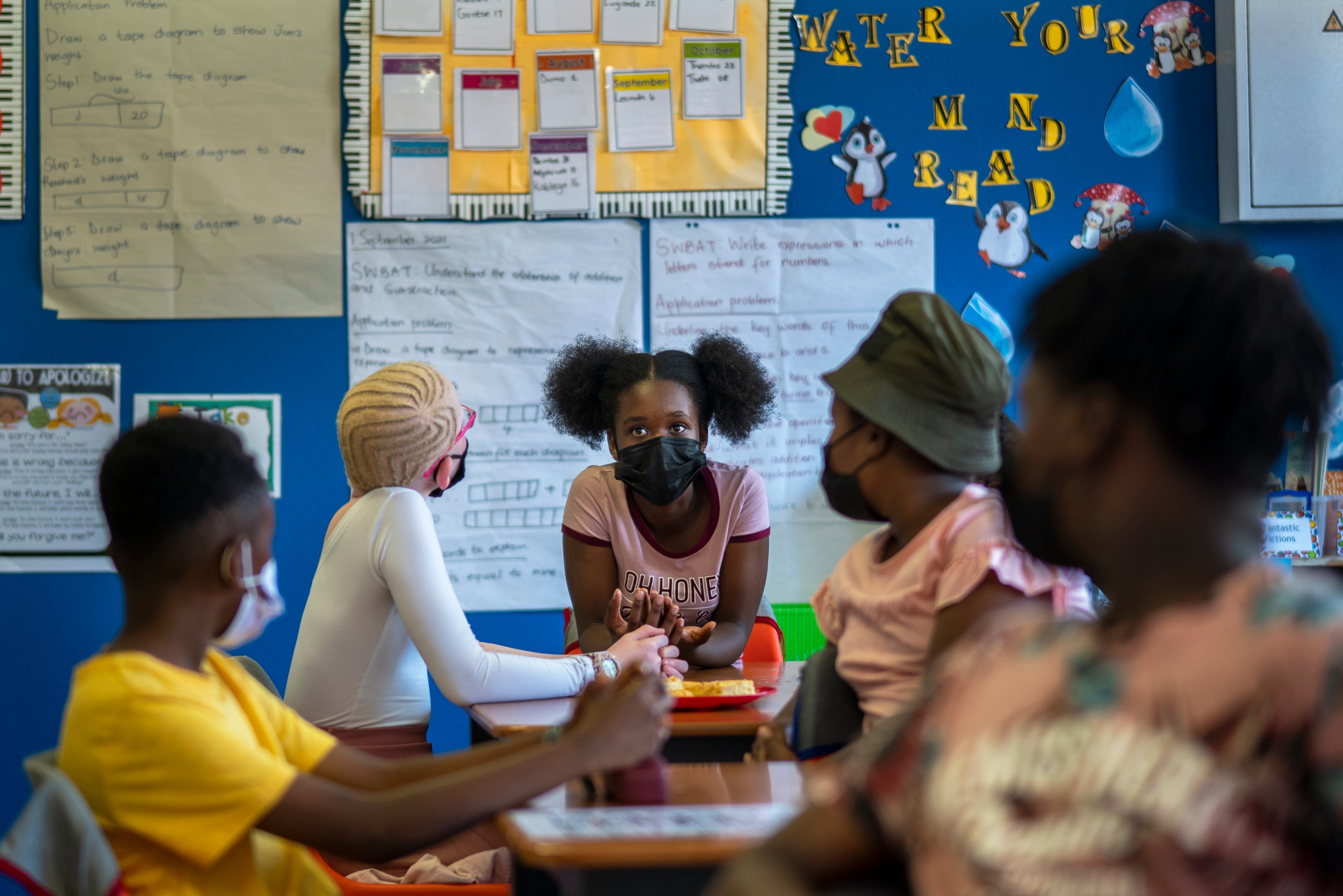South African province where omicron first found sees huge spike in hospitalisations, 10% of them toddlers
Nationwide daily infection rose from 300 a day in November to 3,220 on Sunday

Your support helps us to tell the story
From reproductive rights to climate change to Big Tech, The Independent is on the ground when the story is developing. Whether it's investigating the financials of Elon Musk's pro-Trump PAC or producing our latest documentary, 'The A Word', which shines a light on the American women fighting for reproductive rights, we know how important it is to parse out the facts from the messaging.
At such a critical moment in US history, we need reporters on the ground. Your donation allows us to keep sending journalists to speak to both sides of the story.
The Independent is trusted by Americans across the entire political spectrum. And unlike many other quality news outlets, we choose not to lock Americans out of our reporting and analysis with paywalls. We believe quality journalism should be available to everyone, paid for by those who can afford it.
Your support makes all the difference.The South African province of Gauteng where the first cases of the omicron variant were detected has suffered a huge spike in hospitalisations in the past two weeks, including of children under the age of two, the country’s National Institute for Communicable Diseases said.
There has also been a 10 per cent spike in hospital admission of toddlers in the Tshwane area in South Africa, it added.
Gauteng province recorded 580 hospitalisations this week, in a jump of 330 per cent from 135 hospital admissions two week ago, according to the official data,
The overall number of people with Covid-19 infections admitted to the hospitals in the past two weeks are in line with trends seen during the other waves of infections in the country, which was driven by delta and other variants, Dr Waasila Jassat, a public-health spokesperson at the NICD said.
The scientists in South Africa were first to raise alarm over the heavily mutated omicron variant, which has an unprecedented number of mutations – about 30 – in the coronavirus’ spike protein.
The increase in cases in the province which reported the first cases of the variant seems to have provided first insight into the impact of the new variant even as the health officials have described the symptoms as mild.
South Africa has reported the highest number of omicron variant cases – 77 so far. The country first detected a case with omicron infection on 11 November, when the caseload was lowest in the country since the start of the pandemic.
But since then, daily infection rose from 300 a day daily on an average to 3,220 on Sunday, according to official data.
Dr Jassat said Tshwane, where eight people have died, has seen “a very sharp increase”, especially in the past 10 days. But fewer patients are being treated for severe infections in comparison to previous surges.
“When you look at the numbers of admissions by age, what we normally see is a large number of admissions in older people,” she added. “But in this early resurgence in Tshwane, we are seeing most admissions in the 0-2 age group. And we are seeing a large number of admissions in the middle ages, sort of around 28 to 38,” she added.
South Africa has yet not approved any vaccines for children under the age of five. Vaccines are being administered only to people above 12. The country is also yet to roll out boosters beyond healthcare workers, who have received one dose of the Johnson & Johnson vaccine.
“We’re not sure if it’s related to the variant circulating,” she said.
Meanwhile, the director of South Africa’s communicable disease institute told Reuters that the omicron variant can become a dominant variant, replacing the highly contagious and deadly delta variant.
Adrian Puren said researchers would know within four weeks about the impact of new variant and if it can evade the vaccine immunity. But according to anecdotal accounts by doctors omicron appears to be producing mild symptoms, including a dry cough, fever and night sweats.
Join our commenting forum
Join thought-provoking conversations, follow other Independent readers and see their replies
Comments